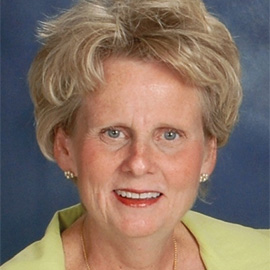By Juli Cardosi, Law Office of Julie A. Cardosi, P.C
Families First Coronavirus Response Act (FFCRA) became effective April 1, 2020 and applies through December 31, 2020 as a measure to assist businesses with fewer than 500 employees with challenges presented by the COVID-19 pandemic. U.S. Department of Labor (DOL) administers and enforces FFCRA’s paid leave requirements.
This FFCRA overview is provided with the caveat that further DOL rulemaking and guidance is expected. Dealerships should consult with their private attorneys concerning FFCRA’s application and must also comply with other existing laws applicable to employee leave.
FFCRA generally provides that Covered Employers must provide to employees:
- 2 weeks (up to 80 hours) emergency paid sick leave at the employee’s regular rate of pay where the employee is unable to work/telework because the employee is quarantined related to COVID-19 (pursuant to Federal, State or local quarantine or isolation order, or advice of health care provider), and/or is experiencing COVID-19 symptoms and is seeking medical diagnosis; or
- 2 weeks (up to 80 hours) emergency paid sick leave at two-thirds the employee’s regular rate of pay where the employee is unable to work/telework because of a bona fide need to care for an individual subject to quarantine related to COVID-19 (pursuant to Federal, State or local quarantine or isolation order or advice of a health care provider to self-quarantine) or care for a child (under age 18) whose school/childcare provider is closed or unavailable for reasons related to COVID-19 and/or the employee is experiencing a substantially similar condition as specified by the Secretary of Health and Human Services in consultation with the Secretaries of Treasury and Labor.
Covered Employers must also provide employees who are employed for at least 30 days:
- Up to an additional 10 weeks expanded family and medical leave at two-thirds the employee’s regular rate of pay where the employee is unable to work/telework because of a bona fide need to care for a child (under age 18) whose school/childcare provider is closed or unavailable for reasons related to COVID-19.

Covered Employers include private employers with fewer than 500 employees. Small businesses with less than 50 employees may qualify for exemption due to school closings/childcare unavailability if business viability would be jeopardized.
Under FFCRA, an employee qualifies for the leave if unable to work/or telework because the employee is:
- Subject to a Federal, State or local quarantine or isolation order related to COVID-19.
- Advised by health care provider to self-quarantine related to COVID-19.
- Experiencing symptoms of COVID-19 and is seeking medical diagnosis.
- Caring for an individual who is subject to a quarantine or isolation order related to COVID-19 or has been advised by a health care provider to self-quarantine related to COVID-19.
- Caring for a child whose school or place of childcare has been closed (or childcare unavailable) for reasons related to COVID-19.
- Experiencing any other substantially similar condition specified by the Secretary of the HHS in consultation with the Secretaries of Treasury and Labor.
Regarding leave duration, for reasons (1) through (4) and (6), full-time employees are eligible for up to 80 hours of leave and part-time employees are eligible for the number of hours of leave an employee works on average over a 2-week period. For reason (5), full-time employees are eligible for up to 12 weeks of leave at 40 hours /week, and part-time employees are eligible for leave for the number of hours an employee is normally scheduled to work over that period.

Regarding pay calculation, for reasons (1), (2), (3), leave shall be paid at either the employee’s regular rate or the applicable minimum wage, whichever is higher, up to $511/day and $5,110 aggregate (over 2-week period). For reasons (4) or (6), leave shall be paid at 2/3 the employee’s regular rate or 2/3 the applicable minimum wage, whichever is higher, up to $200/day and $2,000 aggregate (over 2-week period). For reason (5), leave shall be paid at 2/3 the employee’s regular rate or 2/3 the applicable minimum wage, whichever is higher, up to $200/day and $12,000 aggregate (over 12-week period – 2 weeks of paid sick leave, followed by up to 10 weeks paid expanded family and medical leave).
Covered Employers must post a notice of FFCRA requirements in a conspicuous place on premises. Employers may not discharge, discipline or discriminate against an employee who takes leave under the FFCRA and files a complaint or initiates a proceeding under/related to FFCRA. Employers also face penalties and enforcement under the FFCRA.
Covered Employers qualify for tax credits for all qualifying wages paid under the FFCRA. Tax credits also extend to amounts paid or incurred by the employer to maintain health insurance coverage.
Because of the dynamic nature of developments brought on by COVID-19, dealerships should ensure FFCRA compliance and consult with their legal counsel about its application.
Julie A. Cardosi is an attorney and president of the private firm, Law Office of Julie A. Cardosi, P.C., of Springfield, Illinois. She has practiced law for over 30 years and represents the business interests of franchised new vehicle dealers.
Formerly in-house legal counsel for IADA, she concentrates her practice in the areas of mergers and acquisitions and other transfers of dealer ownership, franchise law, commercial law, state and federal regulatory compliance matters, including employment, and other areas impacting day-to-day dealership business operations. She has also served as former Illinois Assistant Attorney General and Deputy Chief of the Consumer Fraud Bureau of the Attorney General’s Office.
The material discussed in this article is for general information only and is not intended as legal advice and should not be acted upon as such. Dealers should consult their own private legal counsel for application to their specific circumstances. For more information, Julie can be reached at jcardosi@autocounsel.com, or at 217-787-9782, ext. 1.




